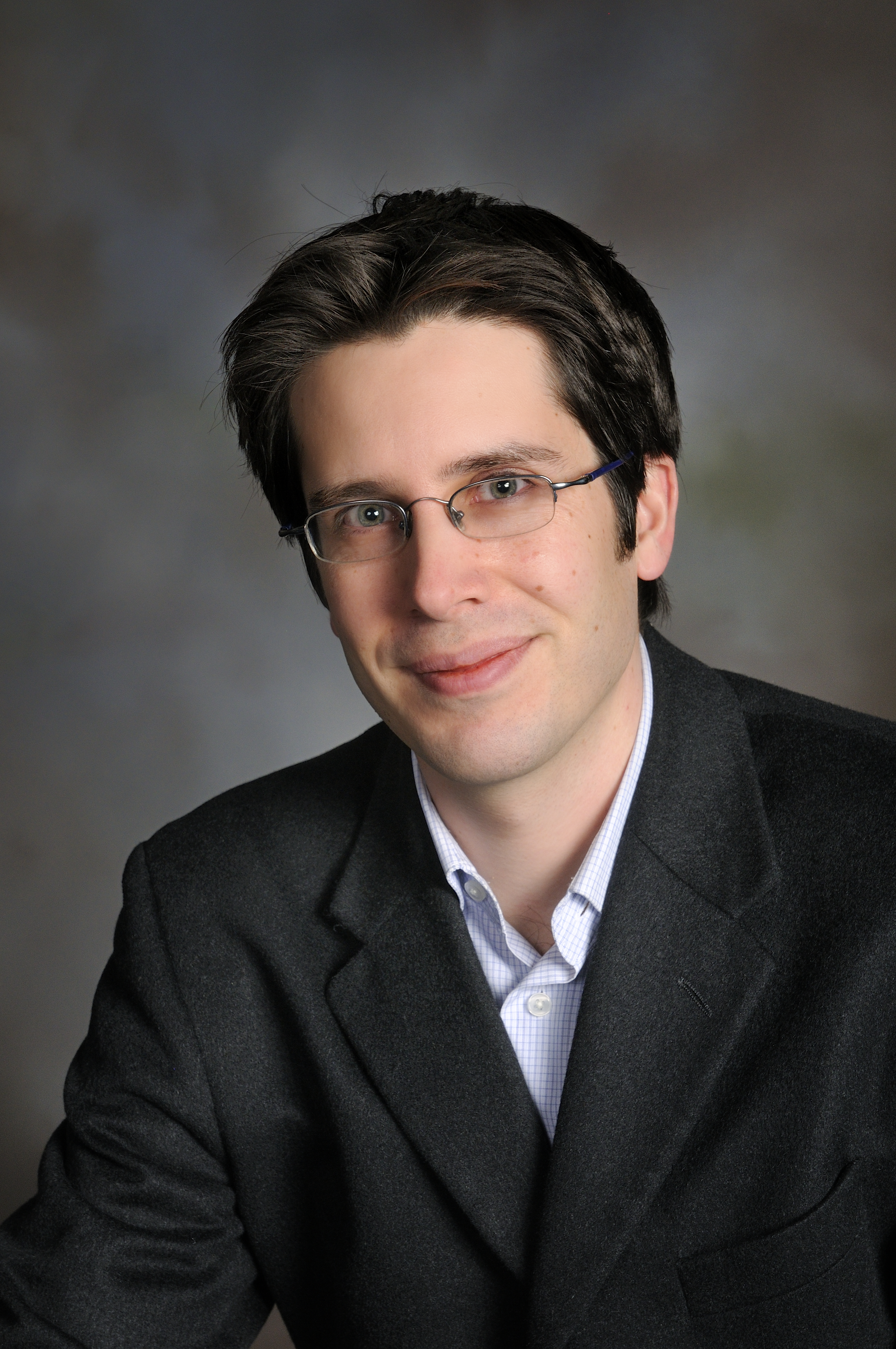Matthew Wisnioski receives 2014 XCaliber Award

Matthew Wisnioski, associate professor in the Department of Science and Technology in Society in the College of Liberal Arts and Human Sciences at Virginia Tech, has received the university's 2014 XCaliber Award for an individual making extraordinary contributions to technology-enriched active learning.
Established in 1996 by the Office of the Provost, the XCaliber Award (shorthand for exceptional, high-caliber work) is presented annually by Technology-enhanced Learning and Online Strategies to recognize individual faculty members or teams of faculty and staff who integrate technology in teaching and learning. The award celebrates innovative, student-centered approaches.
This year’s individual award recognizes the unique design of Wisnioski’s graduate course, Origins of Innovation.
Wisnioski’s seminar explores the boundaries of innovation in both its interdisciplinary course content and co-collaborative teaching strategies. A diverse group of students, ranging in areas of expertise from engineering, anthropology, computer science, education, and policy and governance, work together to design and implement an investigation exploring how innovation has become the dominant frame for knowledge work across the arts, design, engineering, and sciences.
At the center of the seminar is a semester-long collaborative project focused on researching, critically analyzing, and creating a public account of innovative activity at Virginia Tech.
The project is open-ended, shaped by the expertise of each seminar participant, informed by the goals collectively negotiated, and responsive to the shifts of direction encountered in the research process.
Weekly sessions are flexible by design in order to foster a collaborative environment, gain expertise in innovation studies, and equip participants with the technology tools necessary to execute the collaborative project.
Technological enrichment is an essential element of the course and serves to create an environment for collaboration, enable data collection and analysis, and public communication.
At the same time, technology serves as an object of critical inquiry. A primary focus of exploring the origins of innovation included working to understand how technology enriches learning and exploring how technology (as object, system, and idea) shapes visions of learning and innovation.
A collaboratively-authored multimedia website is a key deliverable of the seminar. It maps the collaborative activities and outcomes of the course and demonstrates the participants’ exploration of the dominant meaning of innovation and innovative practices in an interdisciplinary context.
In addition to examining innovation within individual and community contexts, students learn more about how innovation can both motivate and constrain professionals.
“The course’s true measure will be its impact on careers beyond Virginia Tech,” said Wisnioski, who was a fellow in the university's Institute for Creativity, Arts, and Technology this year. “Students will emerge with new understandings of how to, and how not to, produce successful interdisciplinary research, learning in the process to recognize our individual strengths, limitations, and assumptions.”
The Institute for Creativity, Arts, and Technology fellowship provided support for Wisnioski to develop the course which in turn supported the Human-Centered Design component in the Graduate School's Interdisciplinary Graduate Education program.
Wisnioski earned his bachelor’s degree at Johns Hopkins University and a master’s degree and Ph.D. from Princeton University.
Dedicated to its motto, Ut Prosim (That I May Serve), Virginia Tech takes a hands-on, engaging approach to education, preparing scholars to be leaders in their fields and communities. As the commonwealth’s most comprehensive university and its leading research institution, Virginia Tech offers 240 undergraduate and graduate degree programs to more than 31,000 students and manages a research portfolio of $513 million. The university fulfills its land-grant mission of transforming knowledge to practice through technological leadership and by fueling economic growth and job creation locally, regionally, and across Virginia.




